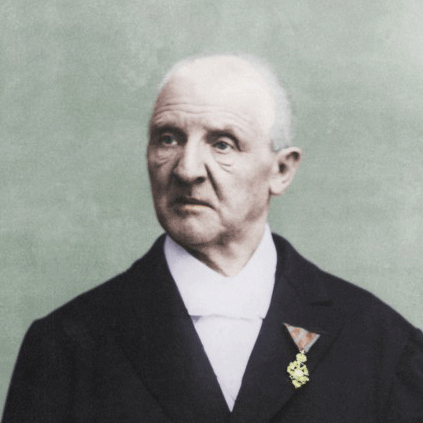In Celebration of the Human Voice - The Essential Musical Instrument
Home | Doo Wop | Barbershop | World | Contemporary | Christian | Vocal Jazz | Choral | Christmas | Instructional | Arrangements
Classical | Opera | Musicals | Personality | Young Singers | Disney | Videos | Songs | The Artists

Anton Bruckner Biography

Click Here for Sheet Music and Songbook Vocal Arrangements
Anton Bruckner was born in Ansfelden to a schoolmaster and organist father with whom he first studied music. He worked for a few years as a teacher's assistant, fiddling at village dances at night to supplement his income. He studied at the Augustinian monastery in St. Florian, becoming an organist there in 1851. He continued his studies to the age of 40, under Simon Sechter and Otto Kitzler, the latter introducing him to the music of Richard Wagner, which Bruckner studied extensively from 1863 onwards. He had alrady in 1861 made acquaintance with Liszt who was religious like Bruckner and who first and foremost was a harmonic innovator, initiating the new german school together with Wagner. Soon after Bruckner had ended his studies under Sechter and Kitzler, he wrote his first mature work, the Mass in D Minor. He was a very devout Roman Catholic. In 1868 he accepted a post as a teacher of music theory at the Vienna Conservatory. At this point he concentrated most of his energies on writing symphonies. However these symphonies were poorly received, considered 'wild' and 'nonsensical'. He later accepted a post at the Vienna University in 1875, and at that time started trying to make music theory a course taught there. Overall, he was quite unhappy in Vienna, musically dominated by the critic Eduard Hanslick. At that time there was a feud between those who liked Wagner's music and those who liked Brahms's music. By aligning himself with Wagner, Bruckner made an enemy out of Hanslick without wanting to. He did have supporters, famous conductors such as Artur Nikisch and Franz Schalk, who were constantly trying to bring his music to the public, and for this purpose proposed many 'improvements' for making Bruckner's music more acceptable to the public, and while Bruckner allowed these changes, he also made sure in his will to bequeath his original scores to the Vienna National Library, confident of their musical validity. Another proof of Bruckner's confidence in his artistic ability is the fact that he often started work on a new Symphony just a few days after finishing another. In addition to his symphonies, Bruckner wrote Masses, motets, and other sacred choral works. Unlike his highly romantic symphonies, Bruckner's choral works are often quite conservative and contrapuntal in style. Bruckner was a renowned organist in his time, impressing audiences in France in 1869, and England in 1871, giving six recitals on a new Henry Willis organ at Royal Albert Hall in London and five more at the Crystal Palace. But he wrote no major works for the organ. His improvisation sessions sometimes yielded ideas for the Symphonies. He also taught organ performance at the Conservatory. One of his students was Hans Rott, whose music greatly influenced Gustav Mahler. Bruckner died in Vienna, and his Ninth Symphony premiered in the same city on February 11, 1903. He was never married, though he proposed to a large list of astonished teenage girls. He had a morbid interest in dead bodies, even at one point cradling the head of Beethoven in his hands when Beethoven was exhumed. He left extensive instructions that he was to be embalmed. Anton Bruckner Private University for Music, Drama, and Dance, an institution of higher education in Linz, close to his native Ansfelden, was named after him in 1932 ('Bruckner Conservatory Linz' until 2004). |
Select a Category |
Want to Sing? - Find a Chorus Near You
List of Choruses by State | List of Choruses by City
